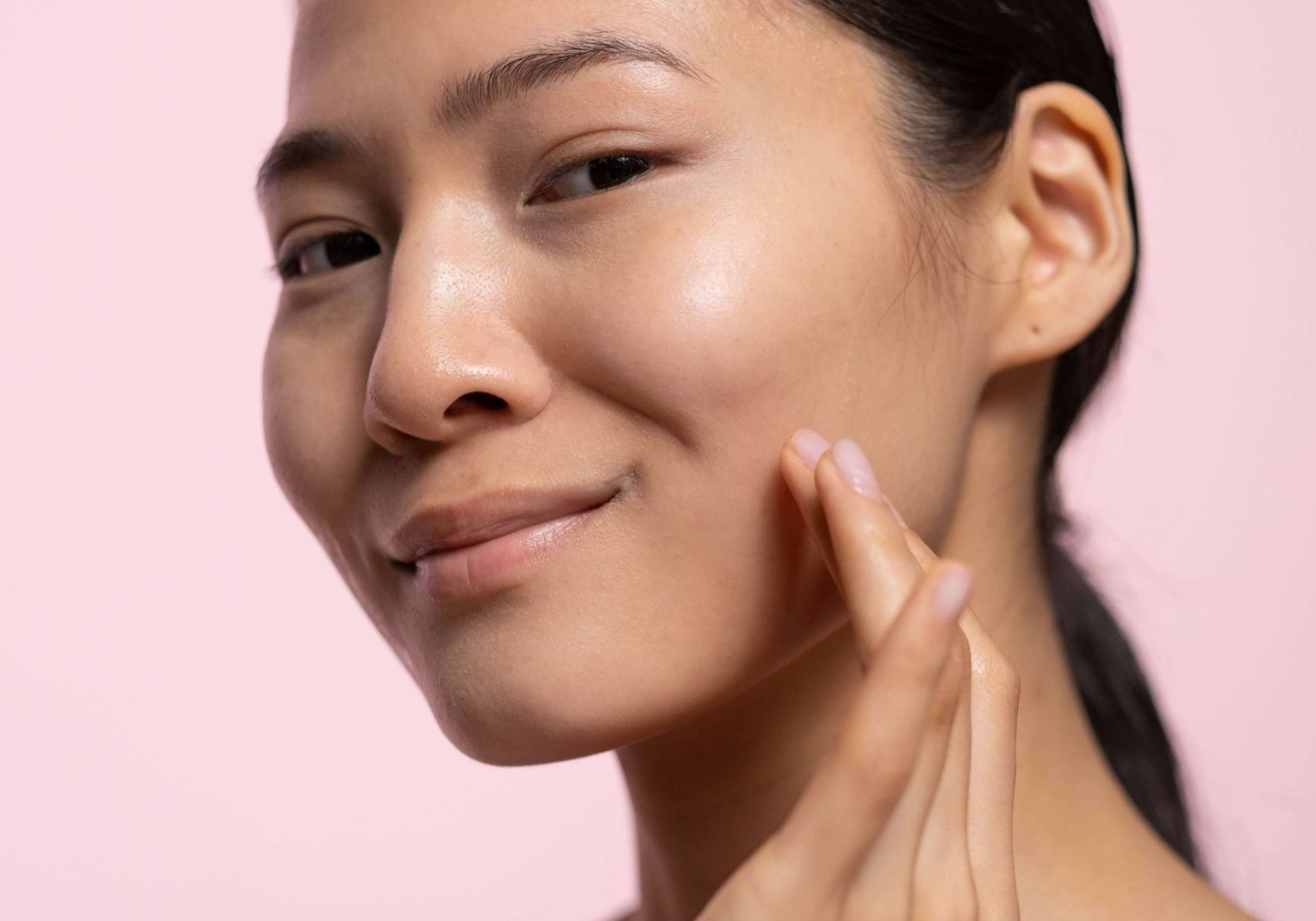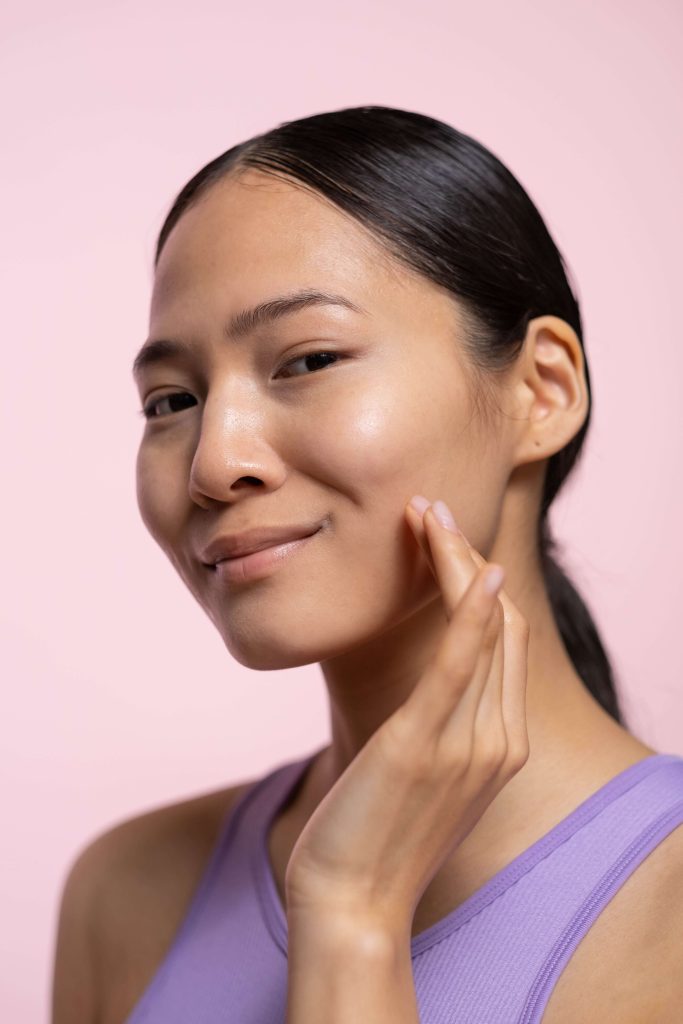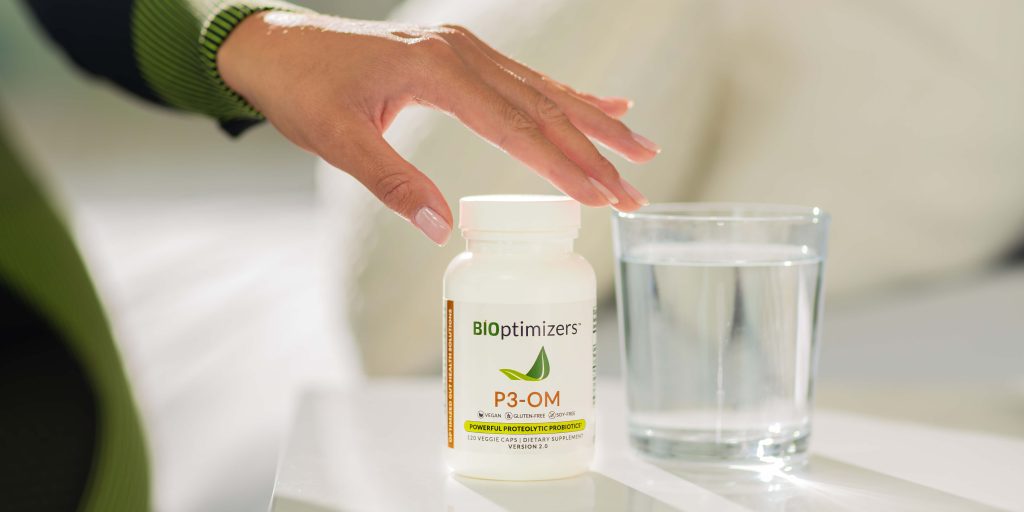Marine Collagen vs Bovine

With so many collagen supplements available, it can be confusing to choose the right one. And with all these options, how do you select the correct one for your needs? This article explains different collagen supplements and their unique benefits for health.

Collagen Types vs. Collagen Peptides
Collagen Types
Collagen is the most abundant protein in the human body and is a crucial component of connective tissues. It is vital to provide the following:
- Strength
- Structure
- Elasticity
Collagen provides these properties for various tissues, including:
- Skin
- Bones
- Tendons
- Ligaments
- Cartilage
- Blood vessels.
Collagen is commonly referred to as the “glue” that holds the body together.

There are 28 different types of collagen in the collagen family. Each type of collagen has its unique structure and function. We will focus on the five main types of collagen found in your body. Here’s a table for easy reference:
| Collagen Type | Source |
| Type I Collagen | Skin, bones, tendons, ligaments, connective tissues |
| Type II Collagen | Cartilage, joints |
| Type III Collagen | Skin, muscles, blood vessels, organs |
| Type IV Collagen | Basement membranes in various tissues and organs, a thin layer of tissue that separates different tissue compartments in the body. |
| Type V Collagen | Cell surfaces, hair, and placenta |
Collagen Peptides
Collagen supplements are generally broken down into peptides with chemical breakdowns, heat, or enzymes. This process, called hydrolysis, cleaves the larger collagen molecules into smaller peptide chains. This results in collagen peptides, which are easier for the body to absorb and use.
They also have a high abundance of amino acids:
- Hydroxyproline
- Glycine
- Proline
Determining what type of collagen you should take is pretty straightforward. Different types of collagen come from different sources and have specific benefits. If you want to increase collagen in your skin, for example, focus on Type I collagen.
However, some exceptions exist as clinical evidence shows that patented collagen peptides are good for specific health benefits. Also, most collagen supplements come from types I, II, and III.
Some particular patented peptides have clinical evidence supporting their benefits for specific tissues or organ systems. Let’s take a look:
FORTIGEL®
FORTIGEL®, hydrolyzed collagen, may support enhanced mobility. A study of 147 athletes explored the effects of Fortigel on joint discomfort. One group took FORTIGEL® as a supplement, while a control group took a placebo for 24 weeks while rating symptom severity.
Those taking Fortigel perceived significantly less joint discomfort than those taking a placebo. Improving joint pain may result in increased joint mobility.
FORTIBONE®
Another mixture of Type I and Type III collagen peptides, FORTIBONE®, may help support those concerned with bone density. A study included 131 postmenopausal women with lower bone density due to aging. The study examined how collagen peptides affected their bone density.
The women took 5g of FORTIBONE® or a placebo daily for 12 months. Those taking FORTIBONE® increased their bone density. This suggests that FORTIBONE® may increase bone formation while decreasing bone degradation.

VERISOL®
If you’re looking for collagen peptides to reduce skin wrinkles, VERISOL® could be your solution.
A study of 114 women aged 45-65 explored the benefits of consuming VERISOL®, containing 2.5g of Type I collagen, for eight weeks. Those taking the supplement experienced:
- Reduced eye wrinkles
- Increased procollagen I, a necessary precursor for your body to produce Type I collagen and support collagen production in your skin
- Increased elastin
Even after participants stopped taking the supplement, the positive effects of VERISOL® lasted up to four weeks.
TENDOFORTE®
TENDOFORTE® is a mix of collagen peptides that helps keep ligaments and tendons healthy. It supports well-being and physical activity.
A study of 20 individuals struggling with the overuse of their Achilles tendons explored the effects of collagen peptides. Participants took either TENDOFORTE® or a placebo, 5g each, and did calf-strengthening exercises for three months. The group taking TENDOFORTE® improved their Achilles tendon function and pain.
12 out of 20 participants could even return to running after being unable to train. Researchers also observed a long-term effect. Participants were still experiencing the supplement’s benefits three months after stopping it.
Now that you know more about collagen and collagen peptides, let’s look at where we get the collagen you find in supplements and how they compare.
What Are Marine, Bovine, and Porcine Collagen (Peptides)? How Do They Vary in Composition and Potential Health Benefits?
While we covered the five main types of collagen, the most commonly extracted types of collagen are I, II, and III. And while people can extract it from various animal or plant sources, the most common sources include:
- Marine, which come from fish, jellyfish, and sometimes marine mammals such as seals
- Bovine come from primarily cows but could include other bovine species such as yak, antelope, bison, water buffalo
- Porcine (pigs)
If you have dietary restrictions, these options make it possible to reap the benefits of collagen peptides. However, each source has unique compositions, benefits, and uses. Let’s take a look.
Marine
Marine animals offer a significant source of collagen, mainly Type I, the most abundant form in your body. It is often extracted from:
- Fish
- Jellyfish
- Sponges
Our bodies can easily use marine collagen because it can be metabolized quickly. It also provides an option for those who prefer to avoid pork or beef products for religious reasons or otherwise.
Marine collagen is highly popular for skin treatment, wound healing, and anti-aging applications.
Wound Healing
Wound healing involves many crucial processes that help you repair and renew tissues, such as during exercise recovery and to repair skin from day-to-day exposure. It doesn’t only happen when you suffer from wounds or injuries.
Marine collagen helps these processes by:
- Creating a supportive structure for cells
- Boosting blood vessel formation
- Assisting collagen synthesis with essential amino acids.
Strengthening tissue helps restore the integrity of the healing area and may also help moderate the inflammatory response. Marine collagen can also help keep the wound site moist, contributing to optimal healing conditions.
While there have yet to be human-controlled trials, animal studies regarding the use of marine collagen for wound healing are promising.
A study explored the effects of collagen peptides from tilapia skin on wound healing in scalded rabbits. Rabbits treated with collagen peptides healed faster than the control group. By the 18th day of treatment, the subjects who received collagen were almost fully healed. The subjects who didn’t get treated only healed 72%.
Similar promising results exist with larger animals. A study explored the effects of sea urchin-derived collagen on wound healing in sheep. Researchers placed a collagen-based skin substitute on healing wounds.
Compared to control, collagen promoted:
- Better controlled inflammation
- Tissue development
- Epithelial cell growth, crucial for restoring the skin barrier and overall wound closure.
- The formation of skin appendages, such as hair follicles and sweat glands, which supports normal skin architecture and function.
Overall, the skin healed at a much higher quality than the control group.
Skin Anti-Aging

Because marine collagen is primarily made up of Type I, it’s an ideal option for skin health. Collagen and elastin fibers are crucial in maintaining skin elasticity and strength. As you age, your body doesn’t produce as much collagen, which can lead to the changes you see in your skin.
Taking a collagen supplement may help support your aging skin and even reduce those natural changes.
A controlled study of 12 women ages 45-60 explored the effects of fish collagen on skin health and quality. Participants consumed ten grams of collagen peptides for 12 weeks. Those supplementing with collagen significantly improved wrinkles’ appearance by 35%. They also benefited from enhanced skin:
- Hydration by 14%
- Radiance by 22%
- Firmness by 25%
Another study with a greater number of participants found similar results. Sixty-four women took either 1,000 mg of collagen peptides or a placebo for 12 weeks. After just six weeks, those taking collagen peptides had more hydrated skin. After 12 weeks, their wrinkles were visibility reduced and had greater skin elasticity.
Bone Regeneration
Marine collagen doesn’t just benefit the skin. It may also support the recovery of bone-related trauma and regeneration. Marine collagen peptides enhance calcium and zinc absorption, vital for bone health.
While more research is needed, animal studies have demonstrated promising results for using marine collagen in human bone regeneration.
One study examined the effects of chum salmon collagen peptides on rats’ osteocalcin levels. Osteocalcin is a crucial hormone for bone health. The collagen-treated group had stronger and denser bones compared to the control group.
Scientists found that collagen from sponges helps human cells, with potential for more uses. In just 16 hours, the application of marine collagen to human cells caused bone-forming cells to grow and form a structure similar to bone.
Researchers also found that marine collagens have a high yield and no risk of disease transmission. They are safer than bovine or porcine collagens.
Marine collagen has many benefits, but it is not very stable when exposed to heat. Collagens’ thermal stability depends on body temperature and living environment. Marine animals live in cooler environments. While this may limit marine collagen applications, you have other options. Both bovine and porcine are more heat stable.
Bovine and Porcine
Bovine and Porcine comprised a mixture of Types I, II, and III, but primarily II and III. They are often combined in treatment but can also be purchased alone. This is important for those who may want to avoid one or the other for religious or personal reasons.

Joint Health
Bovine and porcine collagen may be an excellent option for supporting deteriorating collagen in the joints.
A clinical trial of 30 women ages 30 to 65 with joint discomfort and reduced collagen in their knees explored the effect of both bovine and porcine collagen on joint health. Participants took 5g of collagen morning and night for 13 weeks.
Those taking collagen had improved joint comfort and reduced stiffness. The results were the same regardless of whether they took porcine or bovine collagen.
A controlled study of ten active males explored the effects of collagen supplements on collagen production. They consumed either a placebo or collagen supplement one hour before six minutes of jump rope exercise. Those taking the collagen supplement showed improved collagen synthesis.
Improved collagen synthesis can reduce joint pain and improve physical recovery and movement.
Conclusion
Choosing the right collagen supplement can be overwhelming, but having a goal in mind helps.
- Marine collagen is good for your skin. It helps with tissue healing, anti-aging, and bone regeneration. Although it’s less stable in heat, marine collagen excels in safety and yield.
- Bovine and porcine collagen are viable choices with better heat resistance. Both types show promise in joint health and improving collagen synthesis.
Customizing collagen choices can boost your health journey to match your needs and preferences.
- Kim HS, Nishiwaki K. Control of the basement membrane and cell migration by ADAMTS proteinases: Lessons from C. elegans genetics. Matrix Biol. 2015;44-46:64-69. doi:10.1016/j.matbio.2015.01.001
- Clark KL, Sebastianelli W, Flechsenhar KR, et al. 24-Week study on the use of collagen hydrolysate as a dietary supplement in athletes with activity-related joint pain. Curr Med Res Opin. 2008;24(5):1485-1496. doi:10.1185/030079908×291967
- König D, Oesser S, Scharla S, Zdzieblik D, Gollhofer A. Specific collagen peptides improve bone mineral density and bone markers in postmenopausal women—A randomized controlled study. Nutrients. 2018;10(1):97. doi:10.3390/nu10010097
- Proksch E, Schunck M, Zague V, Segger D, Degwert J, Oesser S. Oral intake of specific bioactive collagen peptides reduces skin wrinkles and increases dermal matrix synthesis. Skin Pharmacol Physiol. 2014;27(3):113-119. doi:10.1159/000355523
- Praet SFE, Purdam CR, Welvaert M, et al. Oral supplementation of specific collagen peptides combined with calf-strengthening exercises enhances function and reduces pain in Achilles tendinopathy patients. Nutrients. 2019;11(1):76. doi:10.3390/nu11010076
- Geahchan S, Baharlouei P, Rahman A. Marine collagen: A promising biomaterial for wound healing, skin anti-aging, and bone regeneration. Mar Drugs. 2022;20(1):61. doi:10.3390/md20010061
- Hu Z, Yang P, Zhou C, Li S, Hong P. Marine collagen peptides from the skin of Nile Tilapia (Oreochromis niloticus): Characterization and wound healing evaluation. Mar Drugs. 2017;15(4):102. doi:10.3390/md15040102
- Melotti L, Martinello T, Perazzi A, et al. A prototype skin substitute, made of recycled marine collagen, improves the skin regeneration of sheep. Animals (Basel). 2021;11(5):1219. doi:10.3390/ani11051219
- Evans M, Lewis ED, Zakaria N, Pelipyagina T, Guthrie N. A randomized, triple‐blind, placebo‐controlled, parallel study to evaluate the efficacy of a freshwater marine collagen on skin wrinkles and elasticity. J Cosmet Dermatol. 2021;20(3):825-834. doi:10.1111/jocd.13676
- Kim DU, Chung HC, Choi J, Sakai Y, Lee BY. Oral intake of low-molecular-weight collagen peptide improves hydration, elasticity, and wrinkling in human skin: A randomized, double-blind, placebo-controlled study. Nutrients. 2018;10(7):826. doi:10.3390/nu10070826
- Xu Y, Han X, Li Y. Effect of marine collagen peptides on long bone development in growing rats. J Sci Food Agric. 2010;90(9):1485-1491. doi:10.1002/jsfa.3972
- Green D, Howard D, Yang X, Kelly M, Oreffo ROC. Natural marine sponge fiber skeleton: A biomimetic scaffold for human osteoprogenitor cell attachment, growth, and differentiation. Tissue Eng. 2003;9(6):1159-1166. doi:10.1089/10763270360728062
- Wang H. A review of the effects of collagen treatment in clinical studies. Polymers (Basel). 2021;13(22):3868. doi:10.3390/polym13223868
- Kumar S, Sugihara F, Suzuki K, Inoue N, Venkateswarathirukumara S. A double blind, placebo controlled, randomised, clinical study on the effectiveness of collagen peptide on osteoarthritis. J Sci Food Agric. 2015;95(4):702-707. doi:10.1002/jsfa.6752
- Lis DM, Baar K. Effects of different vitamin C–enriched collagen derivatives on collagen synthesis. Int J Sport Nutr Exerc Metab. 2019;29(5):526-531. doi:10.1123/ijsnem.2018-0385






